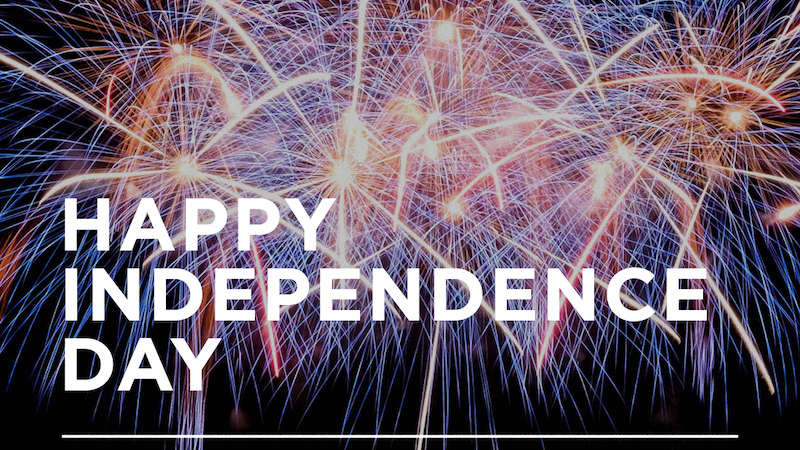
Churches had things to ask for on Independence Day, even though it's a secular holiday. | Archdiocese of Detroit/Facebook
As the nation celebrated Independence Day, the Archdiocese of Detroit called upon Mary to bless the country.
“Today we call upon Mary the Immaculate Conception, Patroness of the United States,” the archdiocese said on Facebook. “May her example of fidelity to Jesus inspire us as we work to unleash the Gospel in our communities. And may her model of faith ennoble us to open our lives to encountering God in a new way today.”
According to author Max Anders, though the Fourth of July is not tied to a Church festival or the feast day of a saint, the founding of this nation was inextricably tied to a belief in God and God-given rights.
As Thomas Jefferson wrote in the Declaration of Independence, “We hold these truths to be self-evident, that all men are created equal, that they are endowed by their Creator with certain unalienable rights, that among these are life, liberty and the pursuit of happiness.” Unlike many other countries, which were founded on the basis of shared ancestors or geographical borders, the United States was founded on shared beliefs. Patrick Henry said, “It cannot be emphasized too strongly or too often that this great Nation was founded not by religionists, but by Christians; not on religion, but on the Gospel of Jesus Christ. For that reason alone, people of other faiths have been afforded freedom of worship here.”
The U.S. Conference of Catholic Bishops (USCCB) offered this prayer for Independence Day: "God of justice, Father of truth, who guide creation in wisdom and goodness to fulfillment in Christ your Son, open our hearts to the truth of his Gospel, that your peace may rule in our hearts and your justice guide our lives.”
Mary, the Mother of God, has been the patron saint of the United States since 1846, under her title of Immaculate Conception, according to the USCCB. She was chosen because many of the different immigrant groups that have come to the U.S. share a special devotion to her, and in that capacity, she unites different people in her maternal love. The USCCB describes Mary as the embodiment of "E pluribus unum," which means "out of many, one.”






 Alerts Sign-up
Alerts Sign-up